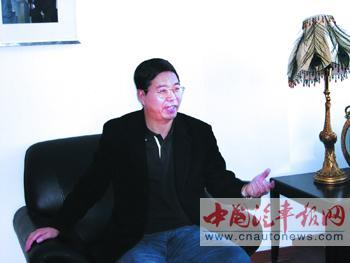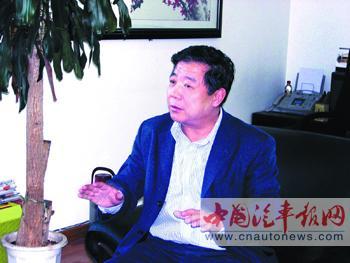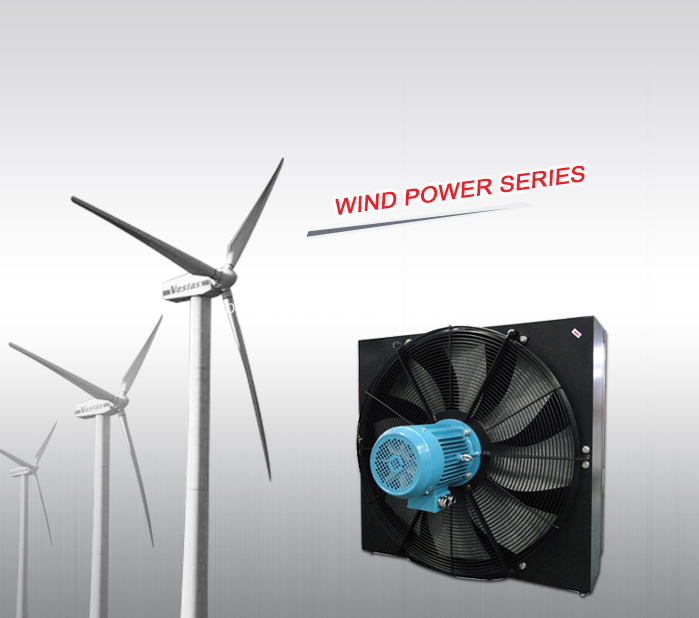
Interlocutor: President of China Auto Newspaper Co., Ltd. Li Qingwen

Distinguished guests: Executive Vice President and Secretary-General of China Automotive Engineering Society Fu Yuwu
Multinational car companies also expect China to have a clear strategy
Li Qingwen: Pay the Secretary-General, thank you for participating in the discussion. In our previous discussions, several guests mentioned that the Chinese automobile industry does not have a clear, clear, strategic structure that everyone can grasp and agree with. If we say that before we entered the “11th Five-Year Plan†and the vehicle production did not reach 7 million, we are not confident enough because of our confidence. We are not sure whether China’s cars will work or not. Then, we have developed to the present At such a very critical stage, it is very urgent to solve the problem of the future development of China’s auto strategy.
Fu Yuwu: I agree with this view that the Chinese auto industry does not have a strategy and urgently needs a clear strategy. In the previous year, they chatted with the president of a multinational group in China. They all saw this problem and said that China’s auto production has already exceeded 5 million vehicles. There should be a clear strategy. After we become a truly big automobile country, no strategy will inevitably affect the future development of the industry. The topic you have raised is very important.
Li Qingwen: Not only have we seen this problem, but even the CEOs of multinational companies have seen it. It can be said that they are onlookers, and it can be said that their desire to participate in our market competition and industrial development is even more urgent. It stands to reason that we are a government-led economy. Automobile development has always been under the government's planning, dominance, and regulation. It should be the most strategic.
Fu Yuwu: This is overly economical with the auto industry. In the past, the auto industry and companies were too far away from the market. Now that the central government has established an innovative national strategy, our automotive industry should also actively innovate, especially in technological innovation. The independent innovation strategy is a key, heavy, and arduous task for engineers and enterprises. The Chinese auto industry must have a core competitiveness and independent innovation capability, and it has a long way to go.
Technically, we are about 10 years behind developed countries
Li Qingwen: You are more familiar with engineering technology. Then, compared with the automotive technology of developed countries, China's automotive technology, in terms of time and technical level, how far is it?
Fu Yuwu: Let me tell a story first. In April last year, at the annual meeting of the American Society of Automotive Engineers, a member of the American Chamber of Commerce inflicted a threat on me in the presence of four or five people and said, "Please tell us why the development of Chinese autos is so fast? Geely went to the United States to participate in exhibitions. How can you dare to get America with this 'broken car'?"
Li Qingwen: This issue is very sharp.
Fu Yuwu: At that time, a senior manager of the Southwest Research Institute took the initiative to stand up and rush to answer for me. He said: "Last 20 years ago, Korean cars were asked similar questions on such occasions. After 10 years, did you dare to mention such a problem for Korean cars?" The people who made the attacks were speechless. So if we measure it from time, I think this gap is almost 10 years or so.
Judging from the technical level, we have a considerable gap in the core technologies of key powertrains such as engines and transmissions. Not only that, but there are also gaps in automotive oil, automotive electronics, and more. More importantly, we have The gap in technical standards and regulations in the automotive industry is even greater.
Technical Regulations Adapt to International Competition We Are Less Capable of India
Li Qingwen: That is to say, not only is there a gap in the core technology, but it is also backward in the construction of standards and regulations for the automobile industry, and even the gap is even greater.
Fu Yuwu: I had a very deep conversation with the secretary general of the Indian Automobile Engineering Society. When our bus is to be exported, he says that it will be accepted according to India's standards and what else is not. India also uses European standards, which means that India has higher coverage of European standards than we do. In this way, there is a problem that Chinese cars have to enter the international market. However, our standard coverage rate is not comprehensive. How can this situation be smoothly internationalized?
Li Qingwen: This is very important. We are such a big industry, such a large amount of production, the standard coverage is not as good as India. To formulate standards must first be detached and justified. Under such a government-led economic system as ours, the formulation of standards should be leading and the result should be backward.
Fu Yuwu: I think the problem is still in the market. For example, in the United States, all standards are set by the SAE, not only the automotive industry itself, but also related fields. Their game rules have formed a complete closed loop, and we are open loop. The government management function is unusually rigid.
Li Qingwen: Not only is it an open ring, it should be said to be fragmented and piece by piece. Under normal circumstances, our standard setting is divided according to the government's functions and powers and cannot be integrated together. The use of open ideas and market-oriented methods to set standards and norms for the automotive industry can produce tremendous social and economic benefits. It is also an urgent need for the development of automobiles and a strong desire of knowledgeable people in the industry.
Fu Yuwu: We plan to organize some prestigious experts in the automotive industry this year to formulate industry "technical specifications" for different areas. I believe that this will play a role in promoting the development of the industry. The government departments cannot do so much.
Breaking the "Open Doors" with Open-minded Building Standards to Promote Strategic Strategic Cooperation
Li Qingwen: It is good to do this basic work. Now our standard management is not smooth. In fact, some government departments and agencies that govern standards should in fact be doing macro management and planning. Specific standards should be regulated by industry organizations, and government departments should assume their supervisory responsibilities.
Nowadays, people have several views on the formulation of standards: First, there are tendencies to develop standards that “a small number of people are behind closed doorsâ€; second, institutions and testing organizations that set standards cannot restrict each other; they are both referees and athletes; and three are standard ones. The process of formulation is not open, democratic, but subjective, administrative, or even mysterious.
Fu Yuwu: In the current context, enterprises and industry organizations should have a role to combine the strengths of all levels and establish a special technical strategic alliance. Standards cannot be done by one family and cannot be seen by the portal. We are now engaged in independent innovation. To master the core technology, it is not a matter of which enterprise, but a common matter of government, production, education, and research.
Li Qingwen: In a certain sense, standards are public products in the automotive industry and should be jointly researched and formulated by representatives of various interests.
Fu Yuwu: There is still such a serious problem. After the joint venture of many companies, the kinship of transnational corporations naturally infiltrates, and bringing their international competition strategies to China poses a major obstacle to the formation of strategic cooperation among the Chinese auto industry.
Li Qingwen: This is very vigilant. We must not bring the barriers between multinational corporations to the Chinese market and industries. We must not let the strategies of multinational corporations compete with each other in the Chinese market and let them influence their strategies and strategies. Unfortunately, some of our companies now consciously or unconsciously follow the strategies of multinational companies and become tools and weapons for people to compete in the Chinese market.
Fu Yuwu: Joint ventures and cooperation are necessary for us, but our strategy must be clear. How to take the technical route? How to build a team? How to integrate human resources? How to get external information? Must be clear.
Industry Advantage Obviously Enterprise Risk is Still High
Li Qingwen: The problem of portal opinion is indeed very serious. It has hindered or even destroyed the cooperation between enterprises. The industry has always had a view that China should form several large enterprise groups. What do you think? Or what companies are most hopeful to become such large enterprise groups?
Fu Yuwu: Integration is inevitable. From the perspective of the entire industry, the development situation is very good, but the world's automobile development track tells us that it can't continue to do so. Only by expanding the platform can we reduce costs and develop better. Therefore, China's autos are still facing arduous tasks of integration. This is the most sensitive, the most important, and the most difficult to do.
Li Qingwen: Basically, there are two kinds of forces. One is a relatively large and powerful old large-scale enterprise, and the other is a new enterprise with rapid development momentum. So, who can become the big international companies with obvious advantages?
Fu Yuwu: The results of the market game are not satisfactory. I think the overall situation is uncertain and the contest has just begun. For example, emerging companies such as Chery have achieved leapfrog development in recent years, have launched many new models, have relatively mature R&D teams, and have strong national support, but there is still a considerable distance in scale. The old companies such as FAW and Dongfeng have also come out of their own ways, but they still have a heavy burden and have not fundamentally solved the system and mechanism issues. So, there are opportunities, but not optimistic.
Li Qingwen: The development trend and direction of China's automobile industry are irreversible and irresistible. It is a foreseeable future that it is technologically advanced. However, as a single micro-enterprises, who is the winner and who is the loser, they still need to be fully competitive. The old state-owned enterprises in the past were well-founded and the new enterprise mechanisms were flexible. Both had their own advantages, but they also had their own risks. Therefore, from a business perspective, there should be a sense of crisis and a sense of urgency.
Fu Yuwu: Everyone is no longer doubted about the capacity of the Chinese auto market, whether it can create innovative capabilities, and whether it can enter the international market. With such a good historical opportunity and market opportunity, how to continue to develop and win from the competition is indeed a problem that companies must consider.
Lack of talents and shortage of leading talents
Li Qingwen: The competition of enterprises is still the competition of people. You know the most about engineers. Then, what is the quality and technical level of our Chinese automotive engineers compared to the developed countries?
Fu Yuwu: I think it is more versatile and less talented; there are more engineers in general, and leaders and master figures are few.
Li Qingwen: The Chinese auto industry has gone through more than 50 years of history. There have been no experts who have a unique view of a certain direction, a certain technical problem, and reached world-class standards. There has not been a large number of experts who can lead a team. All kinds of technical personnel are organized and through effective management to complete the leader of a product's R&D, design, and production process, there is no master figure. What is the reason? Is there a problem with our working environment and growth mechanism? Is it because of the slow development of the industry and the slow development of independent innovation in a relatively long period that has affected the growth of engineers?
Fu Yuwu: It is fortunate that today's automotive engineers can catch the best development period of Chinese cars in the best years. However, there are indeed problems with the growth mechanism. For example, colleges and universities have shortcomings in curriculum setting and training of specialized abilities, too few professional courses, too few practical opportunities, and too little hands-on training. There are also problems in the training of way of thinking. Most of our college students work step by step, and their ability to communicate and coordinate with others is lacking. In addition, the company’s training of engineers is not comprehensive. For example, companies in the United States, Japan, and South Korea actively support engineers to participate in academic activities. When the World Automotive Engineering Society opens its annual meeting, some companies in the country allow their engineers to take vacations. When unqualified, the evaluation engineers also consider participating in industry activities as conditions for evaluation and encourage engineers to integrate themselves into the industry and society.
Li Qingwen: Companies should encourage engineers to have positions in the industry, academics, and images. This is an open, world-oriented company. The engineer should be given an atmosphere of individuality and encouragement and inspire them to create.
We also custom-build coolers upon customers' drawings or parameters. There're all kinds of fin including offset fin, straight fin, perforated fin, louvered fin, corrugated fin for your choice. Comparing with other heat exchanger, the bar Plate Heat Exchanger can reduce weight & size and improve performance.
Advantage:
Compact, Lightweight, High Efficient Heat Transfer;
Cost-effective
Excellent for Air-Air or Air-Oil or Air to Water Cooling

Aluminum Plate Bar Cooler for Power System, Power Equipment Cooler, Wind Power Aluminum Heat Exchanger,Motor Cooler,Generator Oil Cooler,Power Generator Coolers,Engine Coolers
Wuxi Better Technology Co., Ltd , https://www.btheatexchanger.com